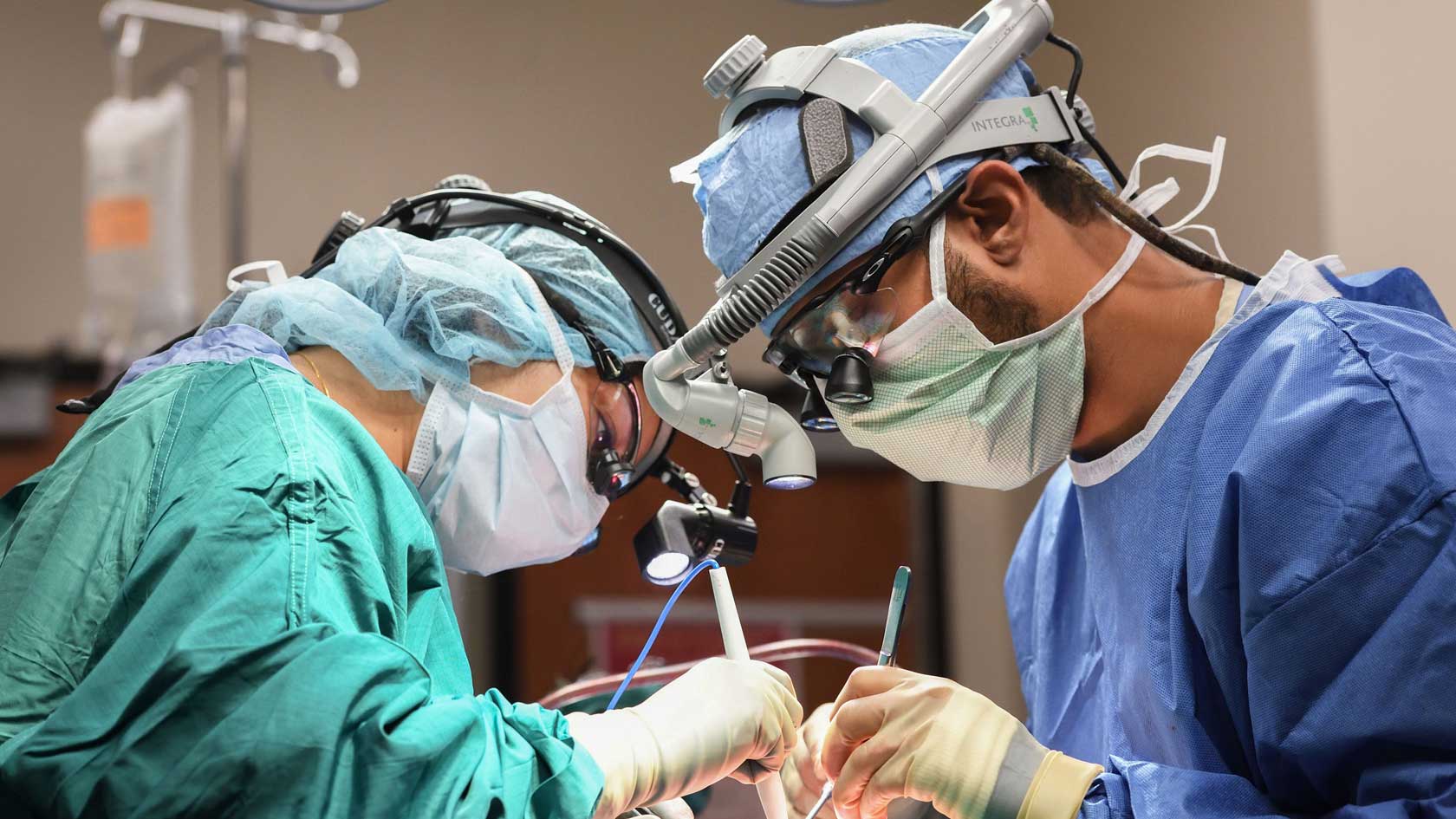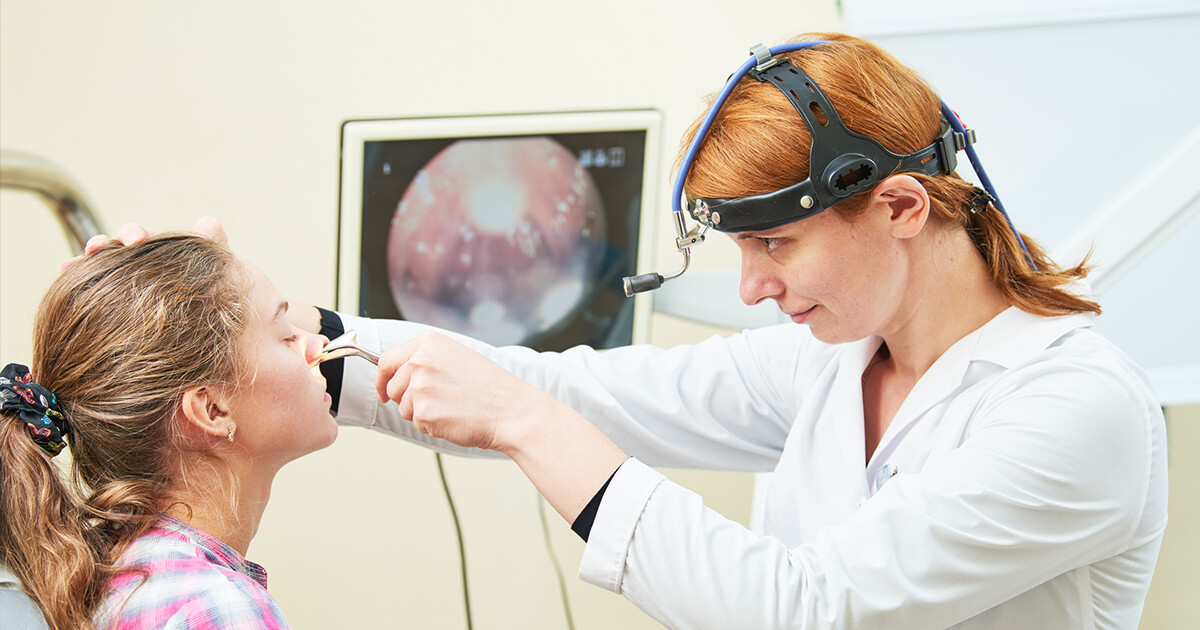Why ENT Clinics Provide Expert Allergy and Sinus Care
Wiki Article
Discovering the Field of Otolaryngology: What to Expect When You Speak With an ENT
Otolaryngology, frequently described as ENT, includes the diagnosis and treatment of throat, ear, and nose conditions. For those experiencing related issues, consulting an ENT professional can supply clarity and relief. Comprehending what to anticipate during such examinations is necessary for efficient interaction and treatment. This overview will certainly detail key elements of the ENT experience, consisting of usual reasons for visits and the procedures associated with medical diagnosis and treatment.
Comprehending Otolaryngology: A Review
Otolaryngology, commonly described as ENT (Throat, nose, and ear) medication, is a specific branch of medication that concentrates on the medical diagnosis and therapy of conditions influencing these vital areas of the human body. This field incorporates a vast array of problems, consisting of those pertaining to hearing, balance, respiratory system feature, and speech. Otolaryngologists are trained to take care of both surgical and medical treatments, utilizing advanced techniques and modern technologies. Their competence extends beyond standard conditions, resolving concerns such as allergic reactions, sinus infections, and hearing loss. Furthermore, they play a vital function in the administration of head and neck cancers, giving thorough treatment tailored to individual patient needs. In general, otolaryngology stays necessary for preserving health and wellness and lifestyle in afflicted people.Typical Reasons to See an ENT Professional
Numerous people look for the experience of an ENT professional for a selection of factors, showing the varied nature of conditions that impact the throat, nose, and ear. Typical concerns consist of chronic sinusitis, which usually leads to relentless nasal blockage and face pain. Allergic reactions and their connected symptoms, such as sneezing and itching, additionally trigger sees to these professionals (Otolaryngologist). Hearing loss, whether unexpected or gradual, is an additional considerable reason for consultation. On top of that, individuals might seek evaluation for throat problems, including relentless hoarseness or swallowing troubles. Sleep apnea, characterized by disrupted breathing throughout rest, is frequently attended to by ENT professionals. Each of these conditions highlights the significance of specialized care in handling intricate ENT-related health and wellness problems
Planning for Your ENT Appointment
When planning for an ENT visit, it is vital to gather appropriate details and take into consideration any kind of specific worries. Clients ought to put together an in-depth case history, including previous ear, nose, or throat concerns, surgical treatments, and existing medications. Recording signs-- such as duration, regularity, and severity-- can offer important understandings for the ENT professional. Furthermore, people should prepare a list of questions they desire to ask, making sure that all problems are attended to during the see. Bringing along any type of relevant clinical documents or examination results can even more aid the ENT in recognizing the person's condition. Lastly, individuals should verify their appointment information, including place, time, and day, to decrease any kind of last-minute complication. Correct preparation can improve the efficiency of the appointment and bring about better end results.What to Anticipate Throughout the Assessment
As the assessment starts, the client can expect to participate in an extensive conversation with the ENT professional about their signs and symptoms and medical background. The specialist will ask about the duration, regularity, and seriousness of signs such as hearing loss, nasal congestion, or aching throat. In addition, the individual's previous clinical problems, medicines, and any type of appropriate family background will certainly be evaluated, helping the specialist in forming a full understanding of the patient's health and wellness. The ENT may additionally ask concerning lifestyle aspects, such as direct exposure to irritants or allergens. This open discussion check this develops a structure for the assessment, making sure that the person's worries are resolved and setting the phase for any Get More Information kind of required assessments or suggestions for treatment.
Diagnostic Tests and Treatments in Otolaryngology
A variety of analysis tests and treatments are essential in otolaryngology to accurately examine and detect conditions impacting the throat, ear, and nose. Common tests include audiometry, which gauges hearing function, and tympanometry, assessing middle ear stress. Nasal endoscopy allows visualization of the nasal flows and sinuses, while laryngoscopy examines the throat and singing cables. Imaging strategies, such as CT scans and MRIs, supply in-depth views of head and neck frameworks. Allergic reaction screening might likewise be carried out to recognize triggers for sinus or respiratory problems. These analysis devices make it possible for ENT specialists to create a comprehensive understanding of people' conditions, ensuring tailored and effective administration strategies. Appropriate medical diagnosis is vital for effective treatment outcomes in otolaryngology.Treatment Alternatives Offered by ENT Specialists
ENT specialists provide a range of treatment alternatives customized to attend to certain problems influencing the ear, throat, and nose. These treatments range from conservative approaches, such as drug and way of living adjustments, to more intrusive procedures. Allergic reactions may be managed with antihistamines or immunotherapy, while chronic sinus problems could need nasal corticosteroids or sinus surgical treatment. For hearing loss, ENT experts frequently recommend listening device or medical treatments like cochlear implants. In situations of throat disorders, options can consist of speech therapy or surgeries to get rid of blockages. Additionally, they might give advice for managing rest apnea, consisting of making use of CPAP devices or medical treatments. In general, the goal is to boost individuals' high quality of life through personalized treatment and effective therapy methods.When to Seek Follow-Up Treatment With an ENT
Acknowledging when to seek follow-up treatment with an ENT specialist is essential for handling ongoing signs and symptoms or issues associated to throat, nose, and ear conditions. Patients ought to take into consideration arranging a follow-up appointment if signs linger in spite of first treatment, such as chronic ear discomfort, nasal blockage, or throat discomfort. Modifications in hearing, balance problems, or uncommon nasal discharge might also call for further assessment. Furthermore, if a person experiences negative effects from suggested medications or has actually undertaken a surgical procedure, follow-up treatment is very important to keep track of healing and resolve any issues. Prompt appointments can guarantee effective administration of problems, avoid prospective difficulties, and give satisfaction concerning one's health and wellness. Looking for follow-up treatment advertises aggressive health and wellness monitoring in otolaryngology.Regularly Asked Inquiries

What Certifications Should I Look for in an ENT Professional?
When seeking an ENT professional, one should seek board certification, pertinent experience, and strong person reviews. In addition, effective interaction skills and a caring strategy can significantly boost the overall therapy experience.How Do I Select the Right ENT for My Demands?
Picking the best ENT specialist entails reviewing their credentials, experience, and client reviews (Sinus). It is necessary to consider their interaction design and method to therapy, guaranteeing they align with the individual's certain wellness needs and preferencesExist Any Kind Of Threats Related To ENT Procedures?
The dangers related to ENT treatments might consist of infection, bleeding, anesthesia issues, and possible damages to bordering frameworks. Individuals need to discuss these risks with their physician to comprehend private worries and warranty educated choices.How Can I Manage Stress And Anxiety Before My ENT Visit?
To handle stress and anxiety before an appointment, individuals can practice deep breathing exercises, visualize positive outcomes, get redirected here prepare inquiries in advance, and seek assistance from friends or family, cultivating a feeling of confidence and peace.What Should I Do if I Experience Adverse Effects From Treatment?
If adverse effects from treatment occur, the person needs to immediately report them to their doctor. Modifications to treatment or added treatments might be needed to ensure safety and effectiveness in handling their condition - Voice. As the examination begins, the patient can anticipate to engage in a comprehensive conversation with the ENT expert about their signs and symptoms and medical background. These diagnostic devices allow ENT specialists to establish an extensive understanding of patients' problems, ensuring customized and effective administration strategies. ENT experts supply a range of therapy options customized to address certain conditions impacting the throat, ear, and nose. When seeking an ENT professional, one should look for board accreditation, pertinent experience, and strong individual reviews. Selecting the appropriate ENT specialist includes reviewing their qualifications, experience, and individual testimonialsReport this wiki page